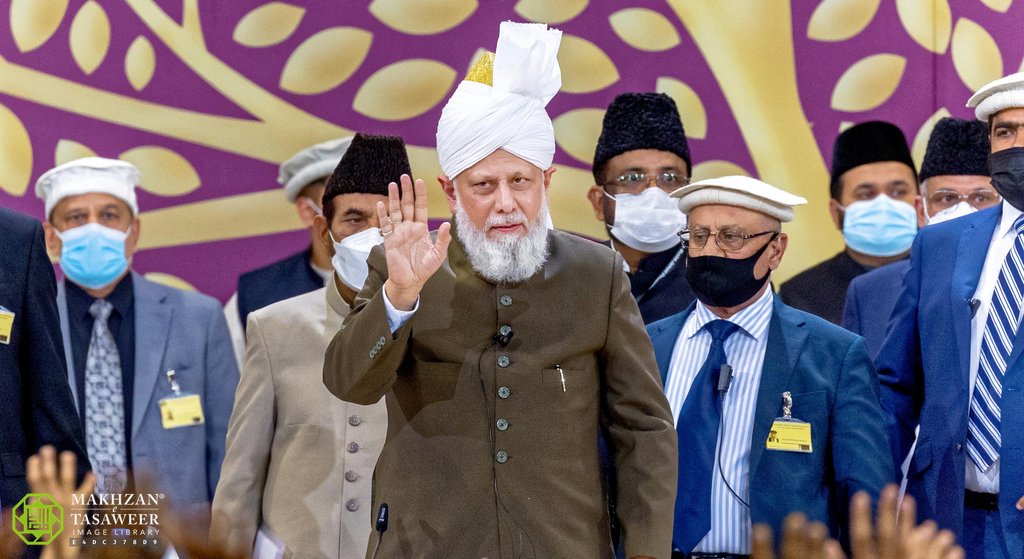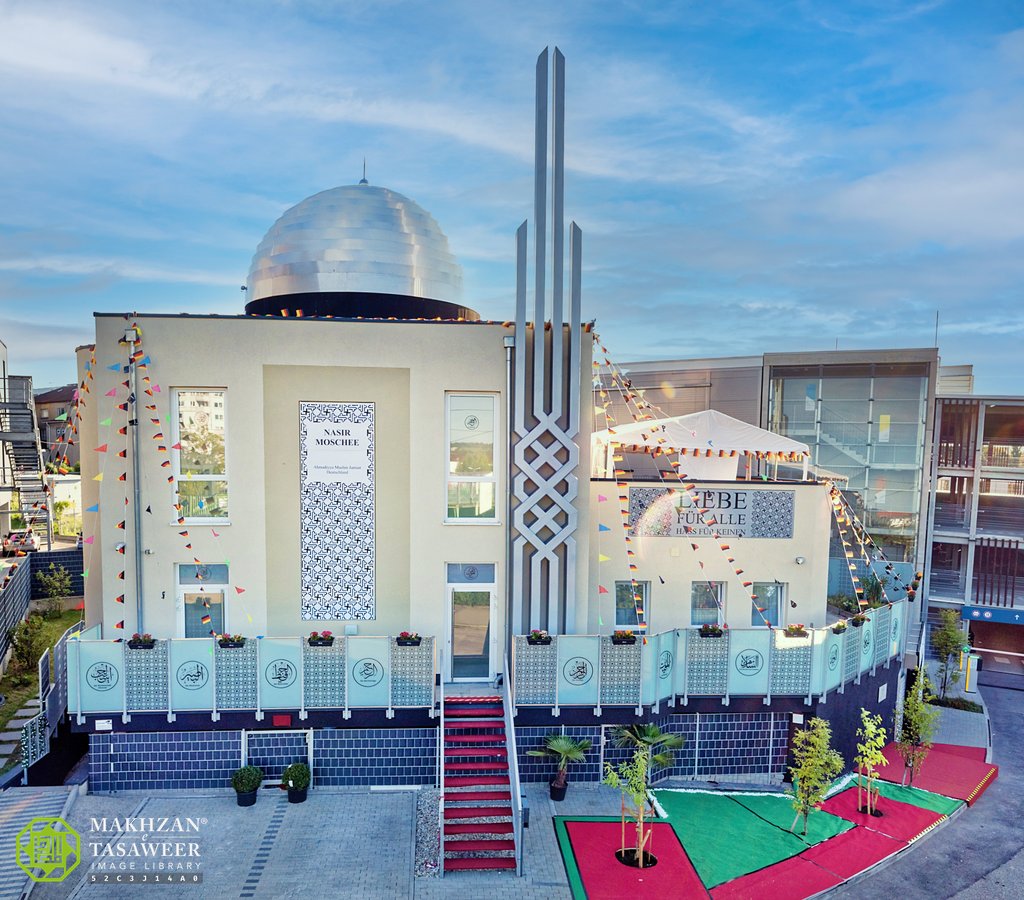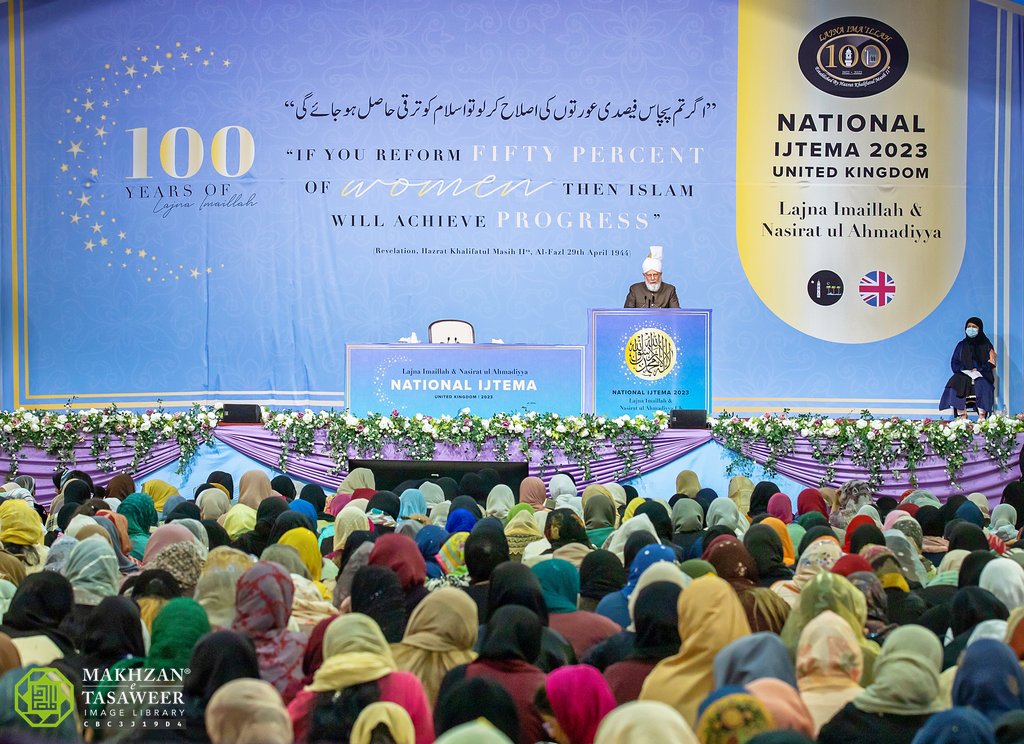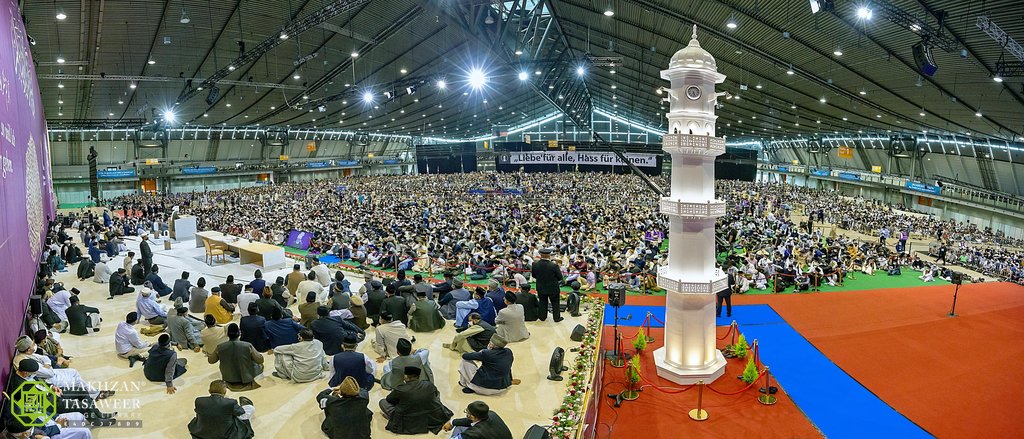
Jalsa Salana Germany 2023 Concludes with Faith Inspiring Address
More than 47,000 people from all over the world attend three-day religious convention in Stuttgart
On 3 September, the World Head of the Ahmadiyya Muslim Community, the Fifth Khalifa (Caliph), His Holiness, Hazrat Mirza Masroor Ahmad concluded the 47th Annual Convention (Jalsa Salana) of the Ahmadiyya Muslim Community with an inspirational address.
This year’s annual convention marked the centenary of the Ahmadiyya Muslim Community’s establishment in Germany, and it was also the first time in four years that His Holiness graced the Jalsa Salana in the country since the Covid-19 pandemic.
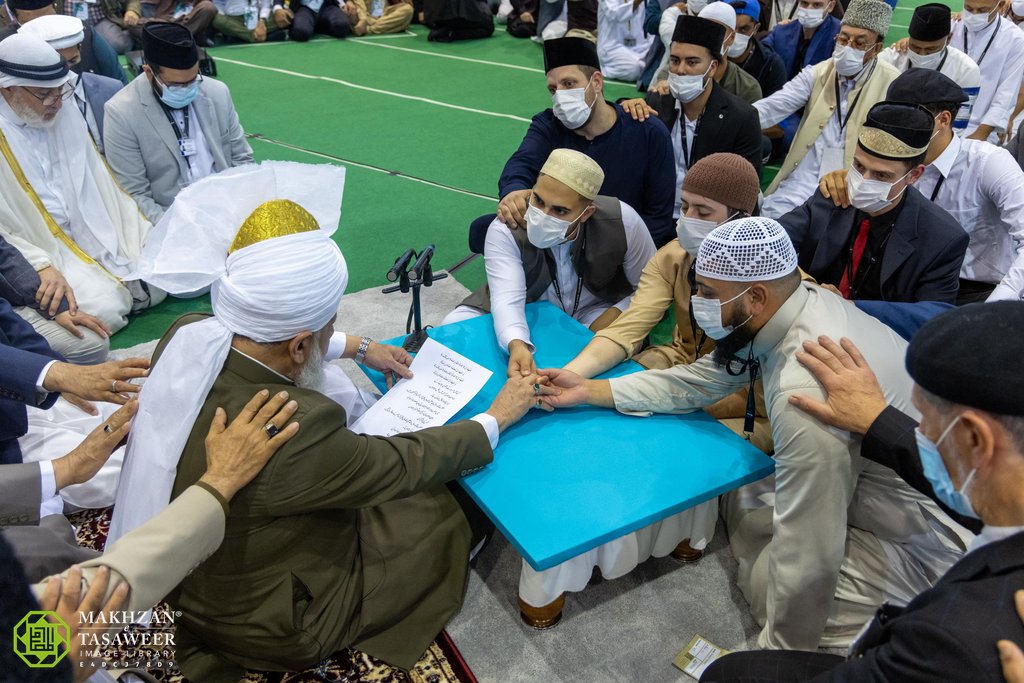
A highlight of the three-day Jalsa Salana was the pledge of allegiance, known as Bai’at, on Sunday afternoon. The participants joined in unison to formally pledged allegiance to Hazrat Mirza Masroor Ahmad as the Fifth Khalifa (Caliph) of the Promised Messiah (peace be upon him).
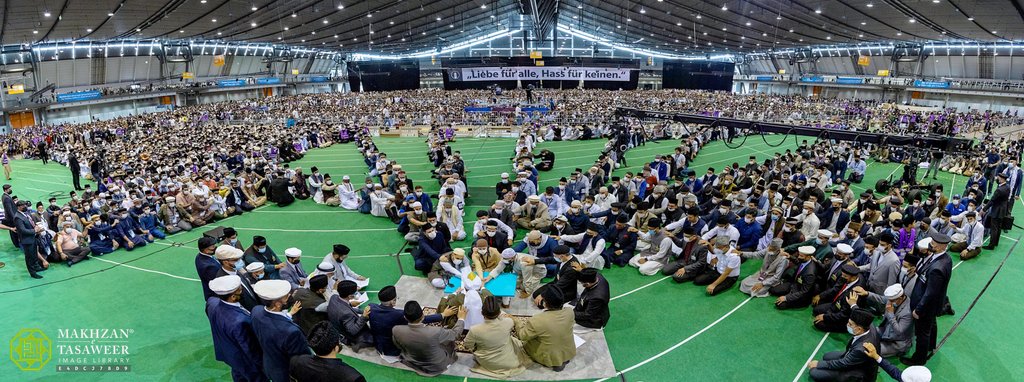 The participants formed a human chain leading to the Khalifa as they repeated the words of the pledge in unison.
The participants formed a human chain leading to the Khalifa as they repeated the words of the pledge in unison.
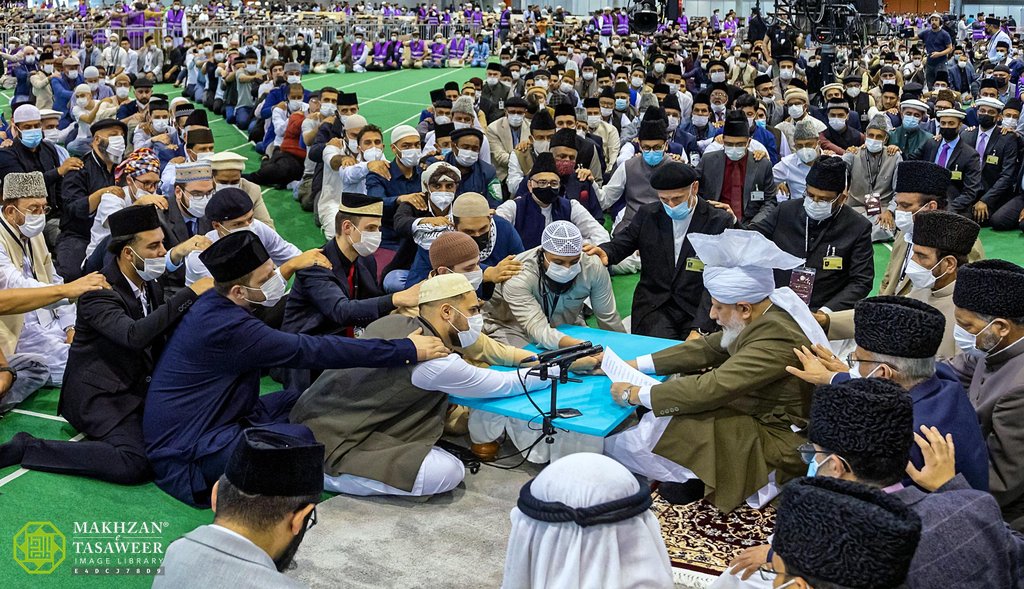
As His Holiness commenced his address, he mentioned that he will again continue the topic of outlining the rights granted to various groups of society by Islam, just as he has done in the past few final-day addresses of the Jalsa Salana.
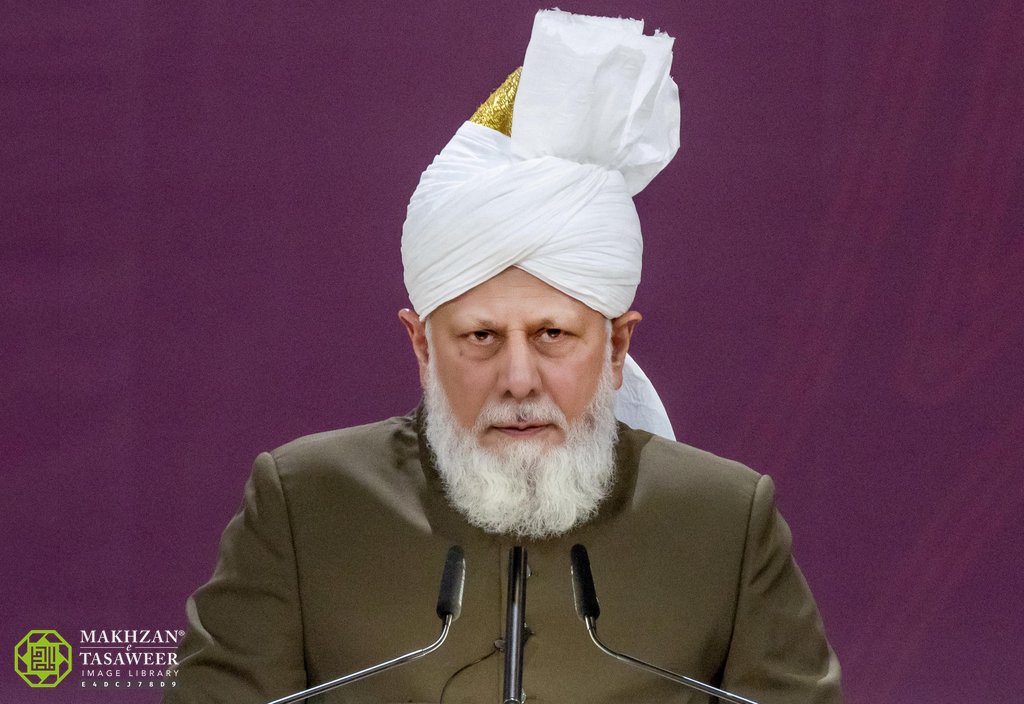
His Holiness recited chapter 2, verse 281 of the Holy Quran, which emphasises the ethical manner in which one ought to engage in financial dealings and how doing so would bring about peace in society. The verse also instructs Muslims to appoint witnesses when partaking in such negotiations.
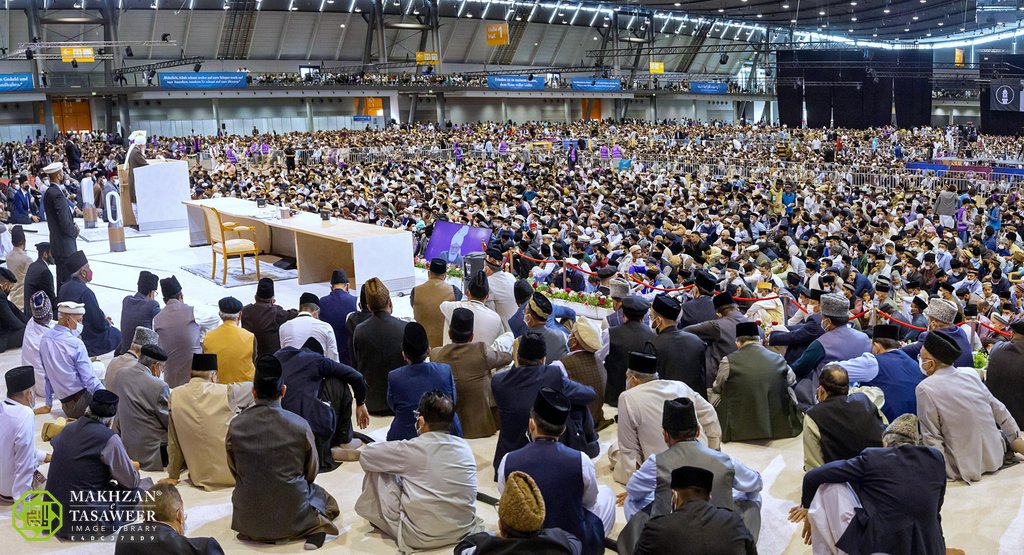
Commenting on the verse, His Holiness explained that on many occasions it becomes known that these injunctions are not adhered to.
Hazrat Mirza Masroor Ahmad stated:
“Witnesses are at times threatened and intimidated, or those who are meant to write down (the contracts) are prevented from doing so or at times there is no facility made to have the contracts written and so agreements become non-existent and all this leads to quarrels and disputes. People in today’s developed world have only now come to the idea that there should be written legal transactions. 1,400 years ago, Islam prescribed this commandment in detail for the conflict-free settlement of business deals and transactions.”
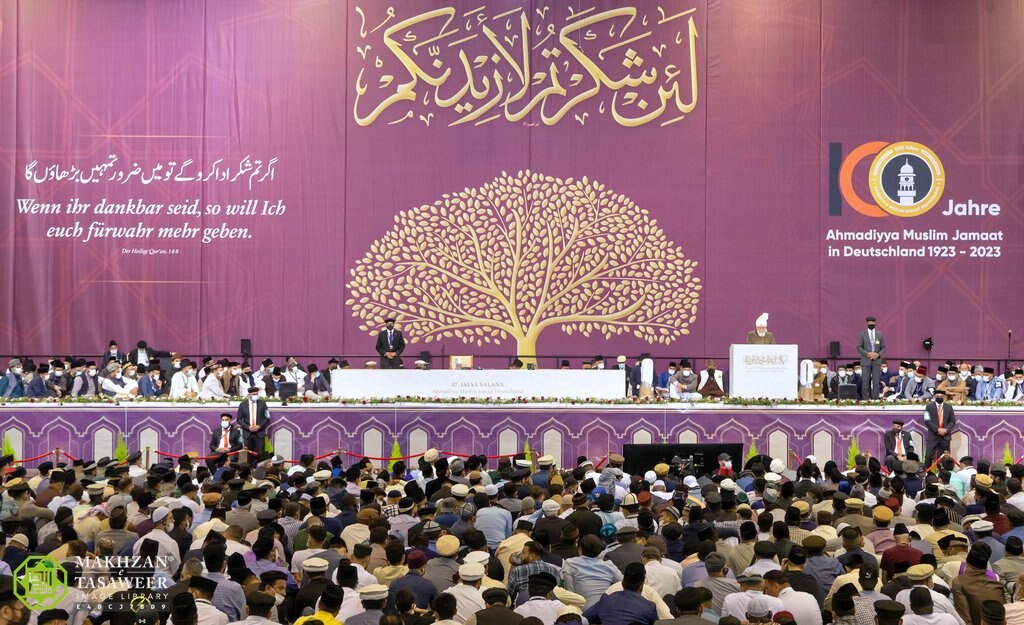
Hazrat Mirza Masroor Ahmad also expounded the rights of the indebted in light of the verse recited at the beginning of the address and stated:
“Islam also establishes the right to facilitate the debtor. For instance, Hazrat Abu Huraira (ra) narrates that the Holy Prophet Muhammad (peace and blessings be upon him) said, ‘whoever grants respite to a destitute debtor or lessens some of his debt, Allah will grant him a place under the shade of the Throne on the Day of Resurrection. On that day there will be no shade bar the shade of the Throne.’ What great assurance this is for a believer who reflects about the shade of the Throne. These are the things that lead to the establishment of a beautiful society.”
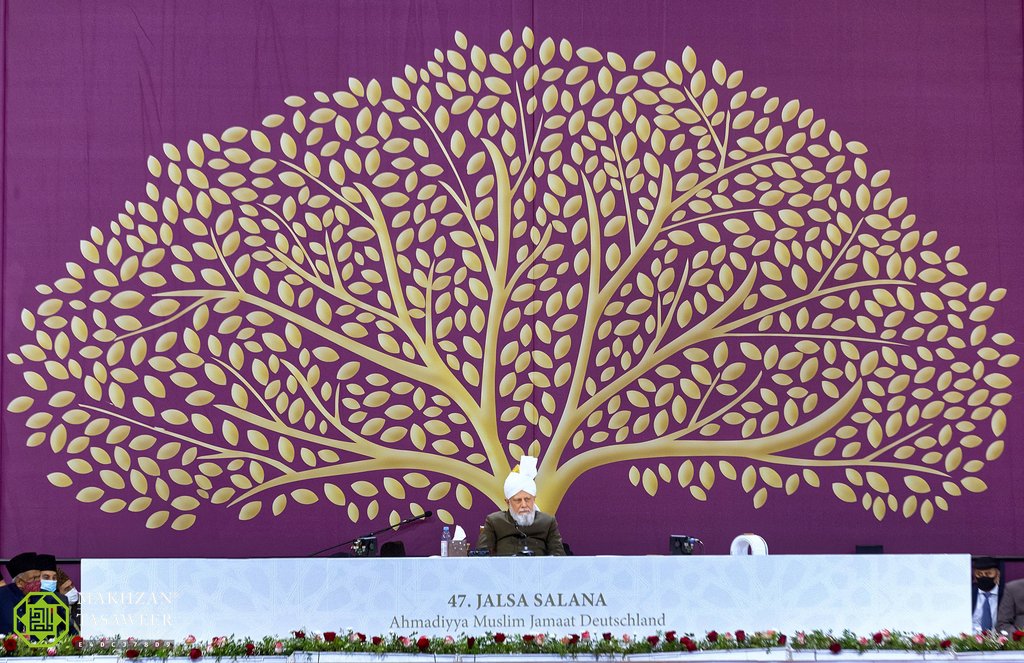
Thereafter, His Holiness spoke on the rights of the general public granted by Islam, and recited chapter 2, verse 84 of the Holy Quran which states:
“And [remember the time] when We took a covenant from the children of Israel: ‘You shall worship [nothing] but Allah and [show] kindness to parents and to kindred and orphans and the poor, and speak to men kindly and observe Prayer, and pay the Zakah’; then you turned away in aversion, except a few of you.” 
Hazrat Mirza Masroor Ahmad elaborated on this verse of the Holy Quran and stated:
“By presenting this example, Muslims were told to impose restrictions. All kinds of rights have been laid down in this verse. The beauty of it is that it (the commandment) is not limited to loved ones and relatives nor is it limited to restricted and deprived groups of people, rather it has been commanded to treat all human beings with kindness and fulfil their rights. This is a beautiful teaching that guarantees peace in the world. The followers of former prophets had forgotten their teachings whilst Muslims were instructed not to forget but to always remember them.”
During the address, His Holiness stressed how an Ahmadi Muslim ought to deal with individuals of other faiths in line with the teachings of Islam.
 Hazrat Mirza Masroor Ahmad referenced the words of the Promised Messiah (peace be upon him) who stated:
Hazrat Mirza Masroor Ahmad referenced the words of the Promised Messiah (peace be upon him) who stated:
“If an individual sees their Hindu neighbour’s house is burning and he does not set forth to go and help them, then I well and truly say that they are not of my Community. If an individual from among my followers sees a Christian on the brink of being murdered, and he does not seek to save them, then I categorically declare that such a person is not of me.”
His Holiness highlighted the fervent efforts of the Rightly Guided Caliphs in the early history of Islam. His Holiness spoke of Hazrat Umar’s ardent desire to construct bridges, mosques, roads, and other buildings for the benefit of the general public.
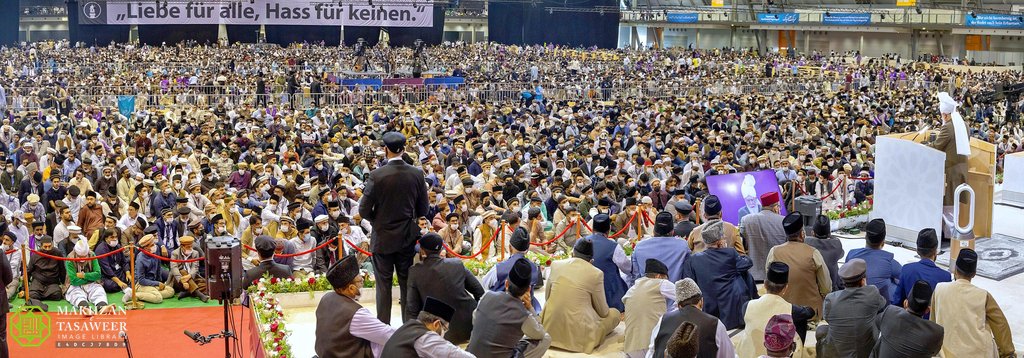 His Holiness mentioned how Islam provided unequivocal rights to the general public that were not to be found elsewhere.
His Holiness mentioned how Islam provided unequivocal rights to the general public that were not to be found elsewhere.
Hazrat Mirza Masroor Ahmad stated:
“Today, Europe is said to provide facilities to the common people. These facilities were first granted in Islam. Their rights were established. If the Muslim governments observe these rights today and start acting upon them, their internal discords will come to an end.”
 Concluding, Hazrat Mirza Masroor Ahmad stated:
Concluding, Hazrat Mirza Masroor Ahmad stated:
“May God Almighty grant us the ability to understand these rights according to the teachings of Islam and to act upon the rights that we have been given the responsibility of. At different occasions, as I have mentioned, I have been relating the rights that Islam has prescribed in detail and the rights of every people. So far, I have addressed about twenty-five of these rights over the years. The fulfilment of these rights is the basic principle which is the surety behind every peaceful society and the peace of the world, and Islam is that very religion which has brought our attention to the fulfilment of these rights in fine details.”
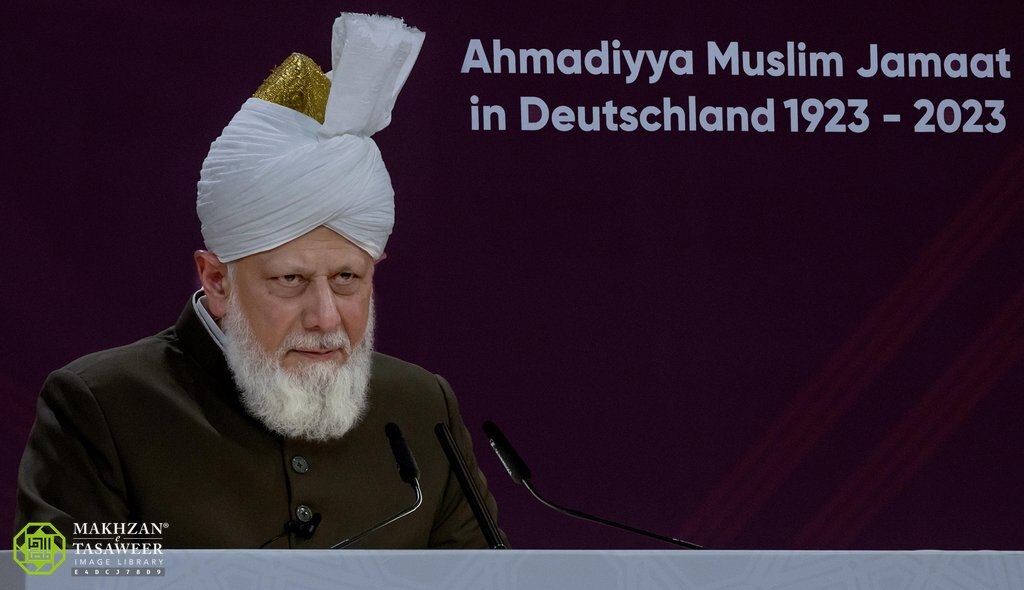 Hazrat Mirza Masroor Ahmad further stated:
Hazrat Mirza Masroor Ahmad further stated:
“Thus, where every Ahmadi Muslim should pay attention to the fulfilment of rights by way of bringing about a pure change within oneself, there is also a need to propagate this teaching across the world. There is a need to make the world aware of the virtues of Islam. Muslims must explain this beautiful teaching and non-Muslims should be made aware of it.”
